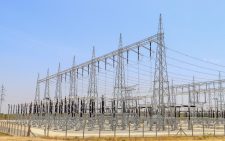High tax regime spikes cost of Kenyan goods in region

The high cost of fuel in Kenya continues to ripple through the economy, significantly raising the cost of goods and services not only locally but also in the region and straining both households and businesses.
With the economy heavily reliant on diesel-powered transportation and industries, rising fuel prices have become a major driver of inflation and the escalating cost of living.
Fuel taxes and levies in the country account for a significant portion of pump prices, making the country’s fuel among the most expensive in East Africa. Despite a recent dip, fuel costs in Kenya remain the highest in the East Africa region.
According to the latest report by the Energy and Petroleum Regulatory Authority (Epra), petrol is priced at Sh176 per litre and diesel at Sh165 per litre in Kenya, compared to Uganda’s Sh169 for petrol and Sh163 for diesel.
Tanzania remains the most affordable, with petrol costing Sh146 and diesel Sh138.
Kenya’s higher prices are primarily driven by the government’s reliance on fuel taxes as a key source of revenue. Taxes and levies contribute approximately 40 per cent of the retail price of fuel, significantly outpacing the tax burden in neighbouring countries.
For every litre of petrol priced at Sh176 in Nairobi, excise duty accounts for Sh57.89, VAT (16 per cent) adds Sh24.68, the road maintenance levy contributes Sh18, and the petroleum development levy adds Sh5.40.
Collectively, these charges total over Sh100 per litre in taxes and levies. In contrast, Uganda imposes around Sh50 in taxes per litre of petrol, while Tanzania charges approximately Sh45 per litre.
These high fuel costs directly affect the cost of goods and services across Kenya. Diesel, which powers most transportation and industrial operations, is a critical input for supply chains. When diesel prices rise, transporters pass the extra costs to businesses and consumers.
For example, farmers in the Rift Valley face increased costs to transport their produce to urban markets like Nairobi, leading to higher prices for vegetables, grains, and other staples.
Production costs
The increased cost of transportation also impacts manufacturers, who rely on diesel-powered generators during power outages, further inflating production costs. In neighbouring Tanzania, the government has implemented policies to cushion consumers from volatile global oil prices, including lower fuel taxation.
This ensures that transportation and production costs remain manageable, resulting in relatively affordable goods and services. Similarly, Uganda benefits from access to alternative fuel supply routes and reduced taxation, which help stabilise prices and shield its economy from the full impact of global fuel price fluctuations.
In Kenya, however, the high fuel prices undermine the competitiveness of local products in regional and global markets. Imported goods often become cheaper than locally produced alternatives, further challenging Kenyan manufacturers.
Additionally, businesses are forced to absorb rising costs, which eats into profit margins or drives up prices for consumers.
The Kenyan government recently extended subsidies to stabilise fuel prices, but these measures have been criticised as short-term solutions. Subsidies strain public finances, often creating budget deficits that affect other critical sectors like healthcare and education.
Meanwhile, the lack of long-term policy interventions, such as reducing taxes or improving fuel efficiency in transport and production, leaves the economy vulnerable to persistent price shocks.
The high cost of fuel in Kenya not only burdens households but also affects overall economic growth.
Disposable incomes are eroded as families spend more on transport and essential goods, reducing their purchasing power for other needs. Businesses, particularly small and medium enterprises (SMEs), struggle to stay afloat as operational costs soar, limiting their ability to expand or hire more workers.
Compared to Tanzania and Uganda, Kenya’s reliance on fuel taxes as a revenue source is proving counterproductive, as the high cost of doing business discourages investment and growth.
Without targeted interventions to lower fuel prices or explore alternative energy sources, Kenya risks falling further behind its neighbours in fostering economic resilience and competitiveness.












